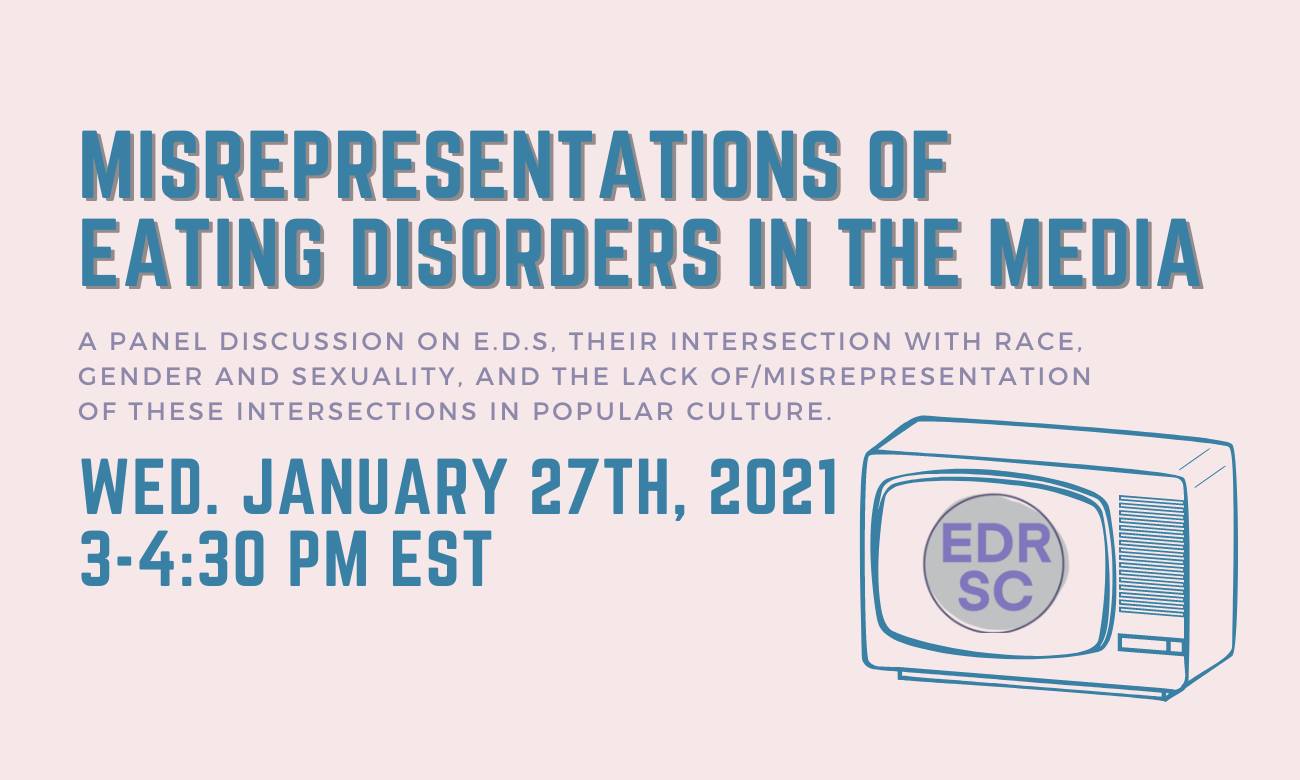CW: Eating disorders
The Students’ Society of McGill University’s (SSMU) Eating Disorder Resource and Support Centre (EDRSC) held a panel discussion on eating disorders and their representation in mainstream media as a part of SSMU’s Mental Health Action Week. Held on Jan. 27, the “Misrepresentations of Eating Disorders in the Media” panel examined the intersections between eating disorders, race, gender, and sexuality. Panellists discussed how these topics are portrayed in popular culture, the effect of stereotypes, and obstacles to obtaining treatment.
Drawing upon personal experiences, panellists discussed how mainstream media tends to portray eating disorders as being the same as experiencing a negative body image—specifically as women trying to comply with heteronormative beauty standards.
Roselyne Douge-Charles, an educator and professor at Algonquin College, spoke about the representation of eating disorders within the Black community. Douge-Charles highlighted the importance of open discussions—which might validate lived experiences more so than clinical reports—as a tool to bring about change in how we understand and represent eating disorders.
“I don’t know if we need more research,” Douge-Charles said. “Just […] having people [at this panel] and listening to people saying that this is real for them should be enough to be a catalyst to see if we can create some changes in the way individuals are supported around eating disorders [….] Sometimes saying that we need more research is a way to deny what we already know. [It’s] like a cop-out. [We] already know what’s going on [and we] need to fix it”.
The panellists delved into misrepresentations of eating disorders and how a lack of representation in treatment spaces can create barriers to accessing support. The panel focussed on how the treatment process needs to be re-examined, especially as we learn more about how eating disorders affect individuals from different backgrounds.
Support volunteer for the EDRSC, Liam Fowler, U1 Agriculture and Environmental Sciences, explained how stereotypes and assumptions can be harmful to individuals living with eating disorders.
“One of the things I’m hearing [in this discussion] is the idea of trying to fit into either a diagnosis or trying to fit a physical or mental narrative,” Fowler said. “The consequence of this is that if you are dealing with some of these feelings, conditions, or habits, you might not be able to identify that yourself because it is not the image that’s being portrayed [to you].”
The panellists focussed on how positive forms of treatment, like peer-led discussion groups, can help reduce trauma that can stem from traditional treatment services. Long waitlists, difficulties accessing treatment, and a lack of representation exacerbate a dangerous cycle for those seeking help. Co-founder of the EDRSC, Cody Esterle, BA ‘20, called on universities and other institutions to provide better support for students living with mental illness.
“This is a huge problem in universities that is facing so many students […] and in order to access [resources] a lot of people need to drop out, [putting] their entire life, education and plans on hold,” Esterle said. “It is not a system that is set up for people to survive in the long run [….] There are events like #BellLetsTalk that just populate the entire narrative and conversation, and you’re not talking about the deeper issues, support systems, [or] resources that [are needed].”
EDRSC is hosting its third annual Eating Disorder Awareness Week from Feb. 1 to 5, with programming offered daily to help raise awareness about disordered eating, provide resources for those struggling, and explore the impact the pandemic has had on eating habits. The centre also offers weekend support groups for those with loved ones struggling with disordered eating and related issues.
Additional information about resources and group support sessions will be posted on the EDRSC’s Instagram and Facebook accounts throughout the week.








